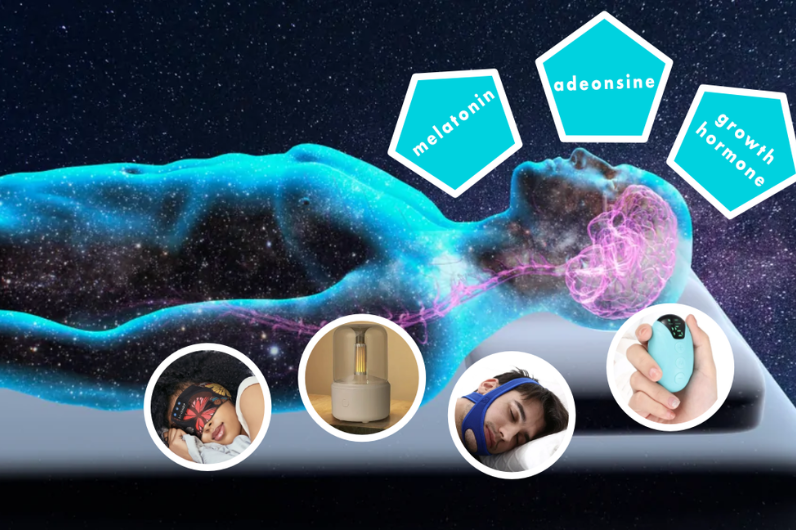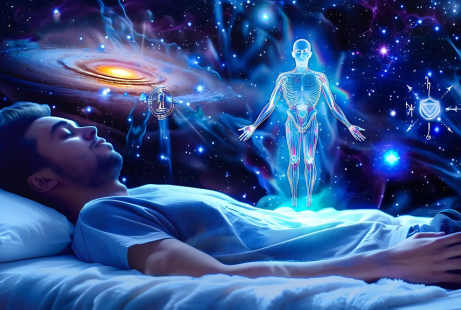Sleep plays an important role in maintaining overall health and well-being. Beyond simply resting, sleep is a complex physiological process that allows the body and mind to recover and regenerate. Scientifically, sleep is essential for various bodily functions, including hormone regulation, immune system support, and brain function consolidation. Understanding the scientific mechanisms behind sleep involves exploring the stages of sleep, such as REM (Rapid Eye Movement) and non-REM sleep, and the intricate interactions between neurotransmitters, hormones, and brain regions that control these stages. During sleep, the brain strengthens neural connections, consolidates memories, and regulates emotions. Additionally, adequate sleep is vital for physical health, influencing cardiovascular health, metabolism, and immune function. It also plays a crucial role in mental health, affecting mood regulation, cognitive abilities, and stress management. At ROYAL MEDICAL & EQUIPMENT TRADING, we are committed to promoting health through quality medical equipment, supporting better sleep and overall wellness for our customers.

What Happens During Sleep?
Within a minute of falling asleep, significant changes begin to impact both the brain and body. Body temperature decreases, brain activity diminishes, and heart rate and respiration rates slow down. Predictably, the body’s energy consumption decreases during sleep. It is important to recognize, though, that what happens during sleep is dynamic. Throughout one night, you progress through multiple sleep cycles, each of which lasts between 70 and 120 minutes and is composed of separate sleep stages. These sleep stages are fundamental to how sleep works.
What Are the Sleep Stages?
Sleep is categorized into four stages, divided into two main categories. The first three stages are part of non-REM (non-rapid eye movement) sleep, while the fourth stage is REM (rapid eye movement) sleep.
1. where we start drifting off and transition to
2. Here, brain and body activity continues to slow, making it easier to wake up during these early stages.
3. is characterized by deep NREM sleep, marked by profound muscle relaxation and slower brain waves compared to wakefulness. This stage is crucial for physical recovery and supports cognitive functions like memory and effective thinking.
4. is REM sleep, distinguished by heightened brain activity resembling wakefulness,
while the body, except for the eyes and breathing muscles, experiences temporary paralysis. REM sleep is associated with vivid dreaming, essential for brain functions like memory consolidation and learning.
What Hormones and Chemicals Affect Sleep?
● Sleep is regulated by a complex interplay of chemicals and hormones that impact our wakefulness and rest cycles. Among these, adenosine is crucial for sleep-wake balance, building up during wakefulness to increase sleep pressure. Conversely, caffeine blocks adenosine, aiding alertness.
● Neurotransmitters like GABA, acetylcholine, orexin, and serotonin also influence sleep and wakefulness by activating or deactivating nerve cells. Hormones such as melatonin, produced in response to reduced light, promote sleep. Other hormones like adrenaline, cortisol, and norepinephrine regulate sleep states and are affected by sleep patterns.
● Genetics can affect how these chemicals and hormones function, contributing to sleep disorders like sleep apnea which can be hereditary. Environmental factors and lifestyle choices also impact these biological signals, influencing our sleep quality and overall health.
Why Is Sleep Important?
Sleep is crucial for overall health and well-being due to its essential role in various bodily functions. It supports physical restoration, helps regulate metabolism, and strengthens the immune system. Beyond these physiological benefits, sleep plays a critical role in cognitive functions such as learning, memory consolidation, and problem-solving. Insufficient sleep can impair thinking and memory, making concentrating and retaining information difficult. Moreover, sleep deprivation is linked to mental health problems like depression and anxiety, exacerbating emotional instability and stress levels. Adequate sleep is essential for maintaining optimal mental and emotional health, as it allows the brain to recharge and process emotions effectively. Overall, prioritizing quality sleep is vital for promoting overall health, cognitive function, and emotional well-being.
Conclusion
sleep is not just a period of rest but a complex process vital for our physical health and mental well-being. It supports essential functions like hormone regulation, immune system strength, and cognitive processing. Understanding the stages of sleep and the roles of neurotransmitters and hormones involved underscores its significance in our daily lives. At ROYAL MEDICAL & EQUIPMENT TRADING, as medical equipment suppliers, we recognize the crucial link between quality sleep and overall health. By promoting awareness and providing solutions that enhance sleep quality, we aim to contribute to the well-being of our customers and their communities.
